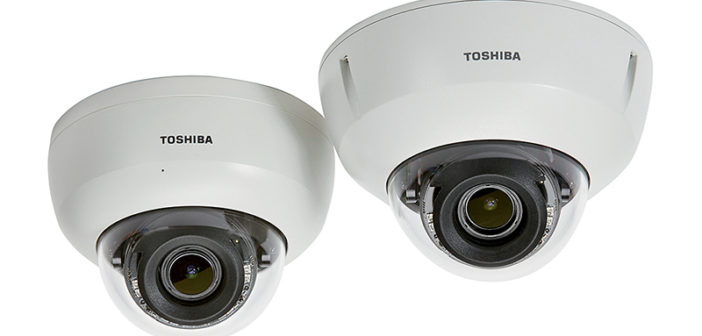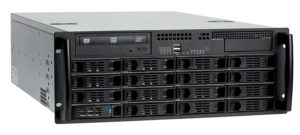IRVINE, CA—Security systems serve an important role in the foundation of guest satisfaction. After all, a guest who doesn’t feel safe won’t be a happy guest. Video surveillance provides not only security measures for guests and hotel associates alike, but can also be used for marketing purposes to measure traffic at different areas of the hotel and other guest-engagement activities. As such, finding the right system in a sea of possibilities is vital to the operation of a hotel. Hotel Business caught up with Greg Hartzell, director, security division, Toshiba American Information Systems Inc., which is headquartered here, for his take on trends in hospitality security, what hoteliers should be looking for, and the benefits and advantages of analog video—which can be networked, but is generally a closed-circuit system—versus IP-based video, a digital solution that can send and receive data via a network and the internet.
How do you evaluate analog and IP-based video solutions, and what’s advantageous for a hotel property? A few years ago, there used to be myriad reasons why IP-based video solutions were advantageous to an analog solution. Analog has started to catch up in several areas, including resolution and the ability to power the camera over the data cable (as opposed to needing a separate camera power supply). Although analog is catching up, resolution is still superior with IP cameras when you get beyond the 5MP range. That being said, there are still several advantages to an IP-based system. One is that you can remotely connect directly to an IP camera and make adjustments to settings. This feature makes the ongoing management of your surveillance system much easier—especially when we are talking about working on a camera that may be hard to reach without a ladder or a lift. Another advantage is that with IP cameras, you only have to connect to the network, whereas with analog cameras, you have to “home run” the cable all the way to the recorder, which is often quite difficult or the distance is too far to maintain a strong enough signal for quality video.
Another main advantage to an IP system is that it is more easily expandable. When you have an NVR (a network-based recorder), you can add more cameras by simply purchasing additional software licenses. When you have a DVR (an analog recorder), you cannot add more channels as you are limited to the number of BNC connections on the back of the DVR.
One more benefit of IP over analog that is probably worth mentioning is the ability to have features that sit on the “edge” of your surveillance system—in other words, features that are included in the camera. Key among these are SD micro hard drives in the camera that continue to record if connection with the NVR is lost. Other key “edge” features available with IP cameras include camera-based motion detection and camera-based analytics.
How much of a price differential is there between the two systems? How do you see that evolving? For now, in very narrow terms, the initial installation of analog cameras with DVRs remains a more cost-effective approach, but there are numerous different criteria that need to be evaluated to determine the final cost of a solution. The cost of IP cameras and related network components is rapidly declining to approach parity with analog systems, making IP systems more and more affordable, especially in larger installations where 16 or more cameras are needed. When a building already has Ethernet cabling installed, it is far more cost-effective to simply attach IP cameras to a high-bandwidth network instead of running brand new coaxial cables for analog. Also, as mentioned previously, the ongoing management of IP cameras can be lower than analog.
How prevalent is IP-based video in the hospitality industry now? It is a fact of life today that IP video surveillance, with its remote access capabilities, high resolution and flexible installation requirements, is critically important for hotels. Guests, hotel employees and the property itself should be under constant security surveillance to ensure safety and give everyone peace of mind. An IP system will help the hotel security team prevent intruders from entering the property and keep trespassers out of areas like gyms or swimming pools, where theft commonly occurs. In addition, IP cameras in storage rooms help to prevent employee theft.
Do you expect IP-based video to replace analog? This is a difficult question. According to most market research, IP has already replaced analog in global sales and will grow at approximately 20% annually over the next five years. However, “HD over analog” products are gaining momentum in the market. As it pertains to the hospitality industry, which has larger systems, I would expect IP-based systems to continue to be the solution type that is most often selected.
Are there certain types of properties that can benefit from IP-based video the most? Conversely, are there types of properties that don’t need that level of sophistication? There is no operation in the hospitality industry that would not benefit from IP video surveillance. In general, the larger the hotel and the more sites that need monitoring, the more important it is to use IP technology.
When evaluating a new security system, what questions should properties ask of themselves and of the vendor to ensure they’re getting the right solution for the property? It really depends on the unique circumstances of each location—especially as it pertains to whether you are talking about an existing location (with or without an existing surveillance system and cabling) or a completely newly constructed location. Some other factors to consider when configuring an IP system for a hotel include how many floors the hotel has and how it is laid out; what amenities are offered, such as a pool, casino or bar; where have most thefts occurred; and how the system will be integrated with the hotel’s current network, access control program and security staff. HB



